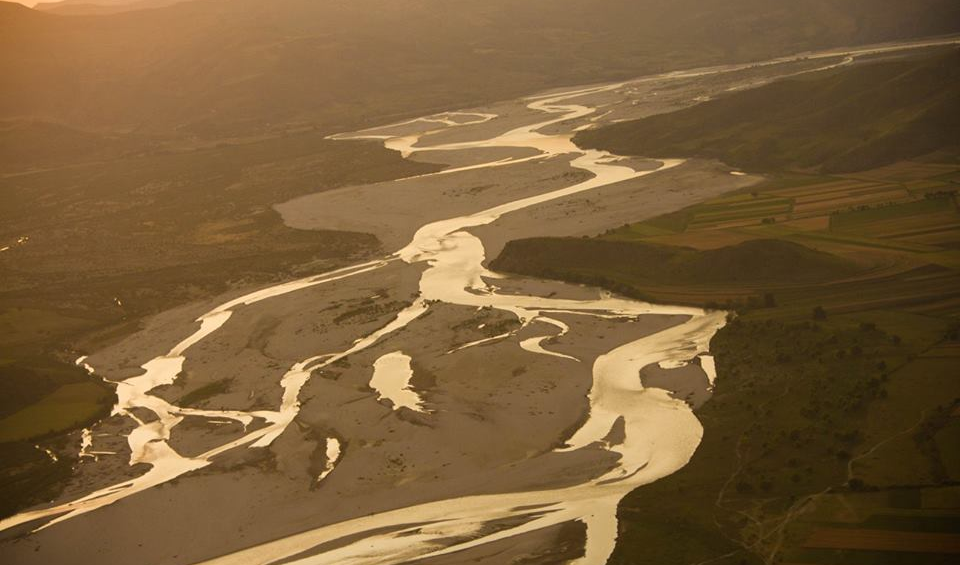Chronicle, Reuters
Environmentalists are calling for a national park to be declared along the Vjosa River valley in a bid to block plans for hydropower projects on the river. They now also have the support of local residents. But, as we learn from the following reportage, the battle for the protection of Vjosa does not end there.
The growing energy needs in Albania as well as in the Balkans have brought a flood of interest from both Albanian and foreign companies for hydropower facilities, 38 of which are on the Vjosë River or the tributaries that feed it.
The German association River Watch is giving its help to turn the Vjosa valley into a national park. They have started a campaign with the slogan: “To save the blue heart of Europe, the rivers of the Balkans”. The campaign focuses on an area that stretches from Slovenia to Albania, where more than 570 hydropower plants are planned to be built.
The association’s chief executive, Ulrich Eichelman, says that Vjosa offers not only an untouched natural environment, but also rare beauty:
“When I visited Albania for the first time and saw Vjosa, I was stunned, as I didn’t think there were any rivers like this left in Europe.”
Vjosa has its source in Greece where it is known as Aoos. The river has a length of 270 kilometers, where it crosses northern Greece and southern Albania and flows into the Adriatic, revealing many natural beauties.
“The Vjosa river system is unique in Europe. It is not found elsewhere. After all, the river is a gift of Albania to the globe, to Europe; we have this wealth here”.
The fact that this is the last river untouched by man in Europe would make the Vjosa an attraction for tourism. Albania has successfully developed nature tourism in the north of Albania, an area that presents untouched alpine beauty.
The government authorities in Albania promise that the projects will be implemented with all the protective parameters. But, as the Minister of Energy and Industry Damian Gjiknuri says, hydropower projects will not be suspended:
Mr. Eichelman says that the projects of companies from rich European countries are nothing but the robbery of natural resources. The River Watch Association has drawn local residents behind it in its battle, who have signed a petition against the construction of dams.
But the reality is that Albania meets 35-40% of its energy needs through imports. The development of new capacities for energy production remains one of the main priorities to support the further economic and industrial development of the country.
To see the chronicle, you can click here (in Albanian)







